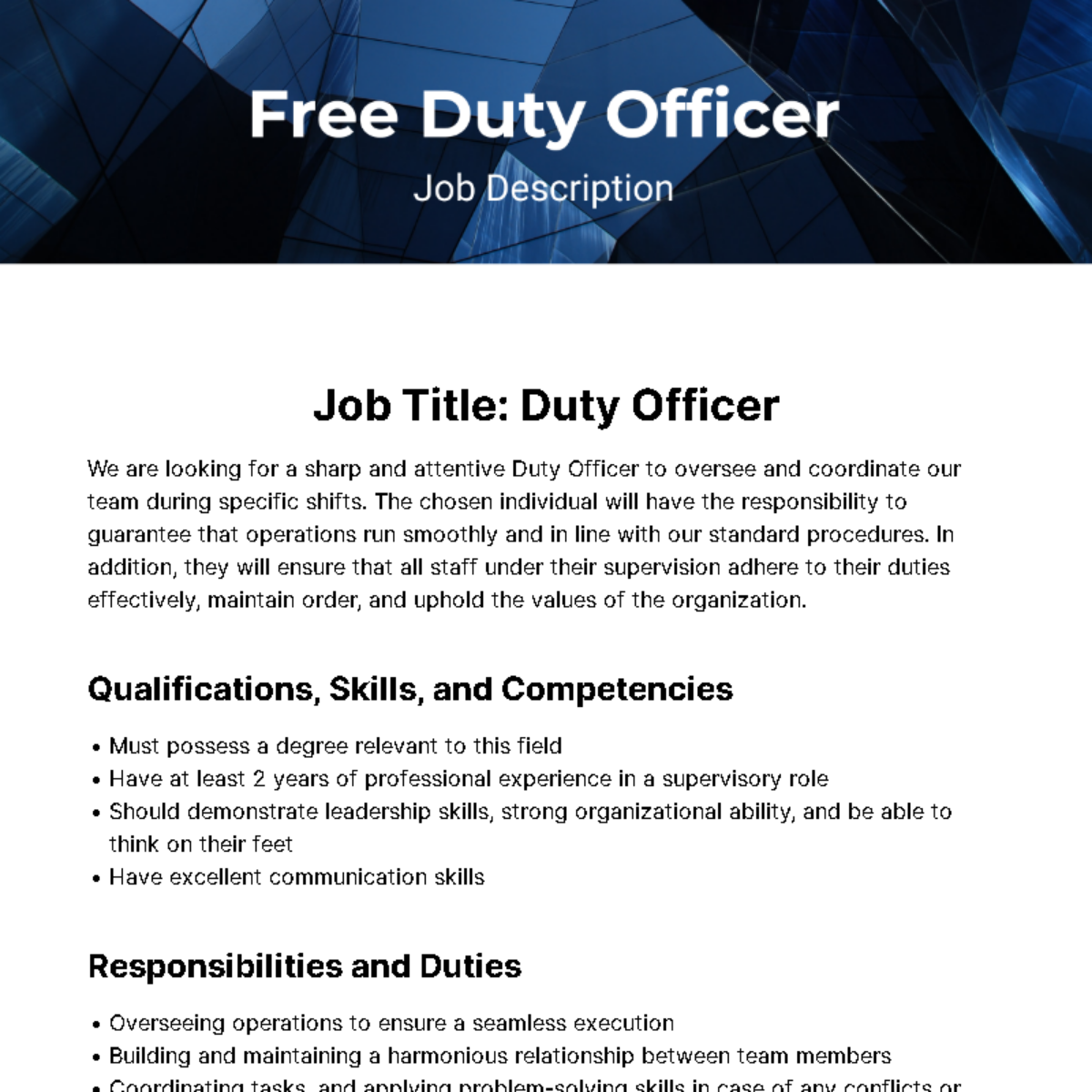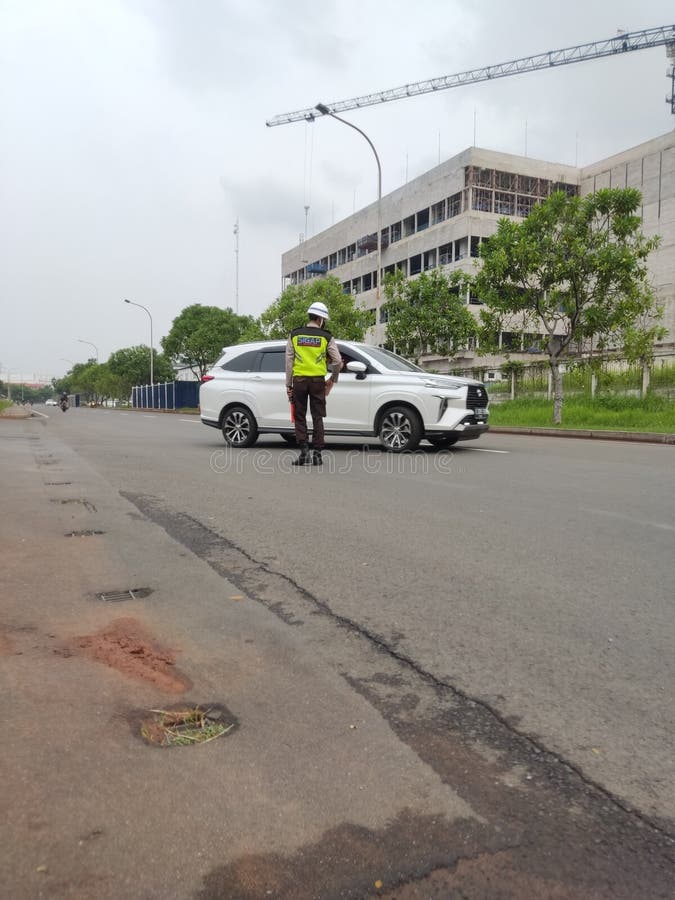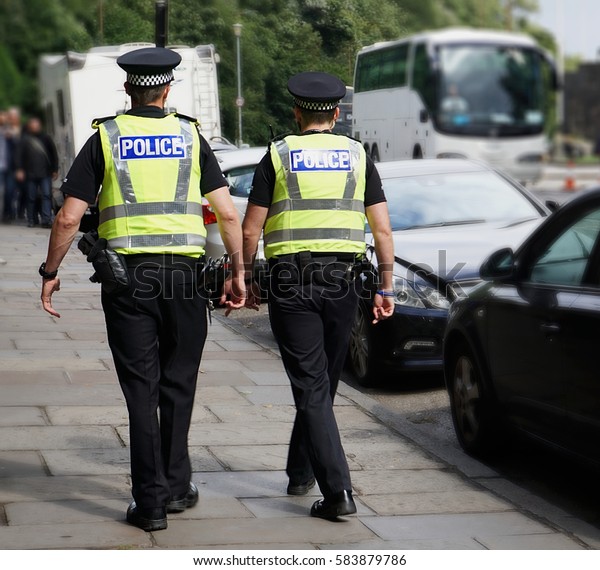Being an officer on duty is more than just wearing a uniform or sitting behind a desk. It’s about responsibility, leadership, and making critical decisions that can impact an entire organization. Whether you’re in law enforcement, corporate security, or even military service, understanding what it means to be an officer on duty is crucial for success.
You might be thinking, “What exactly does an officer on duty do?” Well, buckle up because we’re about to dive deep into the nitty-gritty of this role. From daily responsibilities to the challenges you might face, we’ve got everything covered. This isn’t just another article—it’s your go-to resource for all things related to being an officer on duty.
So whether you’re a newbie or a seasoned pro looking to brush up on your skills, this guide will help you understand the ins and outs of the job. Let’s get started, shall we?
Read also:Mount Saint Marys Basketball The Heart And Soul Of College Sports
Table of Contents:
- What is an Officer on Duty?
- Key Responsibilities of an Officer on Duty
- Skills Required to Be an Effective Officer on Duty
- Biography of a Typical Officer on Duty
- Daily Routine of an Officer on Duty
- Challenges Faced by Officers on Duty
- Tools and Technology Used by Officers on Duty
- Career Growth Opportunities for Officers on Duty
- Statistics and Data Related to Officers on Duty
- Conclusion
What is an Officer on Duty?
Let’s start with the basics. An officer on duty is essentially someone who takes charge during a specific shift or period. They’re responsible for overseeing operations, ensuring safety, and handling any emergencies that may arise. Think of them as the backbone of an organization when things get chaotic.
Now, here’s the thing: the role of an officer on duty isn’t limited to one industry. You’ll find them in law enforcement, military units, corporate security teams, and even healthcare facilities. Regardless of where they serve, their main goal remains the same—maintain order, protect assets, and ensure smooth operations.
And let’s not forget, being an officer on duty requires a unique set of skills. You need to be quick on your feet, think critically, and communicate effectively. It’s not just about following rules; it’s about making smart decisions under pressure. But more on that later.
Key Responsibilities of an Officer on Duty
Alright, so what does an officer on duty actually do? Here’s a breakdown of their key responsibilities:
1. Supervising Operations
As an officer on duty, one of your main tasks is to supervise daily operations. This could mean monitoring security systems, ensuring staff compliance, or overseeing patrol schedules. Think of yourself as the eyes and ears of the organization during your shift.
Read also:Eric Church The Man Who Redefined Country Music
2. Handling Emergencies
Emergencies happen, and when they do, it’s up to you to handle them. From medical crises to security breaches, you need to stay calm and take charge. This involves coordinating with other team members, contacting authorities if needed, and documenting the incident.
3. Maintaining Communication
Communication is key, my friend. Whether you’re reporting to higher-ups or communicating with your team, clarity and efficiency are essential. Use radios, phones, or even digital platforms to keep everyone in the loop.
And remember, good communication isn’t just about talking—it’s about listening too. Make sure you’re always open to feedback and suggestions from your team.
Skills Required to Be an Effective Officer on Duty
Now that we’ve covered the responsibilities, let’s talk about the skills you’ll need to excel in this role. Being an officer on duty isn’t for the faint of heart. It requires a combination of technical expertise, soft skills, and a whole lot of determination.
- Leadership: You’ll need to lead by example and inspire your team to perform at their best.
- Problem-Solving: Quick thinking is crucial when faced with unexpected challenges.
- Communication: As mentioned earlier, clear and effective communication is a must.
- Attention to Detail: Even the smallest detail can make a big difference in preventing potential issues.
But wait, there’s more. You’ll also need to be physically fit, mentally sharp, and emotionally resilient. It’s a tough job, but someone’s gotta do it, right?
Biography of a Typical Officer on Duty
Let’s take a moment to meet John Doe, a typical officer on duty. John has been in the field for over 10 years and has worked his way up from a rookie to a seasoned professional. Here’s a glimpse into his life:
| Name | John Doe |
|---|---|
| Age | 38 |
| Experience | 10+ years |
| Education | Bachelor’s Degree in Criminal Justice |
| Specialization | Emergency Response and Crisis Management |
John’s journey hasn’t been easy, but his dedication and passion for the job have kept him going. He’s a true testament to what it means to be an officer on duty.
Daily Routine of an Officer on Duty
So, what does a typical day look like for an officer on duty? Here’s a peek into John’s daily routine:
1. Morning Briefing
Every day starts with a morning briefing. This is where John meets with his team to discuss the plan for the day, review any incidents from the previous shift, and assign tasks.
2. Patrol and Monitoring
After the briefing, it’s time for patrol. John spends a good portion of his day walking around the premises, checking security systems, and ensuring everything is in order. It’s a lot of walking, but hey, it’s good exercise!
3. Incident Handling
If an incident occurs, John springs into action. He assesses the situation, coordinates with his team, and ensures everything is documented properly. It’s a high-pressure situation, but John thrives under pressure.
Challenges Faced by Officers on Duty
Of course, no job is without its challenges. Being an officer on duty comes with its own set of hurdles. Here are a few:
- Long Hours: Shifts can be long and grueling, especially during emergencies.
- Stress: The pressure to make quick decisions can be overwhelming at times.
- Work-Life Balance: Balancing work and personal life can be tough, but it’s essential for mental well-being.
Despite these challenges, officers on duty find fulfillment in knowing they’re making a difference. It’s not just a job—it’s a calling.
Tools and Technology Used by Officers on Duty
In today’s digital age, officers on duty rely heavily on technology to do their jobs effectively. Here are some tools and technologies commonly used:
- Communication Devices: Radios, smartphones, and tablets are essential for staying connected.
- Security Systems: CCTV cameras, access control systems, and alarm systems help monitor and secure premises.
- Data Management Software: Tools like incident reporting software and database management systems streamline operations.
Technology has revolutionized the way officers on duty perform their tasks. It’s all about leveraging these tools to enhance efficiency and effectiveness.
Career Growth Opportunities for Officers on Duty
So, where can an officer on duty go from here? The opportunities for career growth are vast. With experience and further education, you could move up the ranks to become a supervisor, manager, or even a senior executive. The sky’s the limit!
Additionally, there are specialized roles you could pursue, such as emergency response coordinator, security consultant, or training instructor. Each path offers its own set of challenges and rewards.
Statistics and Data Related to Officers on Duty
Let’s talk numbers. According to recent studies, the demand for officers on duty is expected to grow by 5% over the next decade. This growth is driven by increased security concerns and the need for more efficient operations.
Furthermore, officers on duty report a high level of job satisfaction, with 80% stating they find their work fulfilling. These stats highlight the importance and value of this role in today’s society.
Conclusion
Being an officer on duty is a challenging yet rewarding career choice. From overseeing operations to handling emergencies, the role requires a unique blend of skills and dedication. But with the right mindset and tools, you can excel in this field and make a real difference.
So, if you’re considering a career as an officer on duty, remember this: it’s not just a job—it’s a commitment to protecting and serving. And who knows? You might just find it’s the best decision you ever made.
Before you go, take a moment to share your thoughts in the comments below. What excites you most about being an officer on duty? And don’t forget to check out our other articles for more insights and tips. Stay safe, and keep shining!


